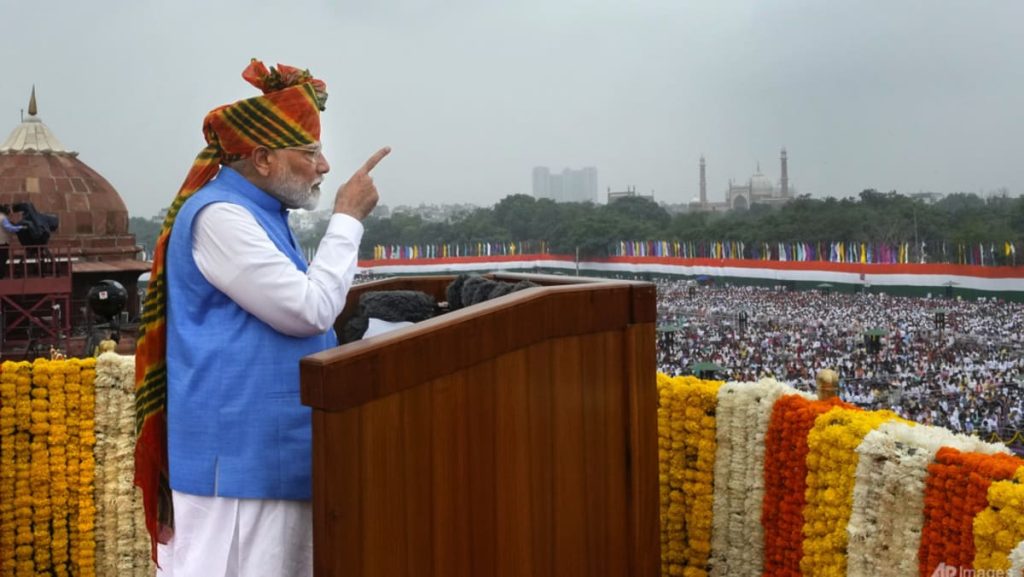Prime Minister Narendra Modi of India recently expressed support for implementing a national common civil code of law. This proposal aims to standardize laws across all religious communities in India, particularly in areas such as marriage, divorce, and inheritance. Currently, India’s 1.4 billion people are subject to a common criminal law, but there are variations in personal laws based on religion. The proposed civil code, however, has faced strong opposition from Muslim activists and liberals who view it as an attack on the rights of the country’s largest religious minority.
During his annual Independence Day address, Modi emphasized the need to move away from laws that lead to division based on religion and inequality. He argued that a secular civil code would be more appropriate for a modern society. The Prime Minister’s call for a common civil code comes amidst concerns about the BJP government’s Hindu nationalist rhetoric, which has raised anxieties among India’s Muslim population of over 220 million. Modi stressed the importance of promoting debate on the issue, encouraging all citizens to share their opinions on the matter.
Modi’s push for a national common civil code comes at a time when his party, the Bharatiya Janata Party (BJP), faced a setback in the recent elections and was forced into a coalition government after failing to secure an outright majority. The BJP’s Hindu nationalist ideology has been a central theme in Indian politics, often leading to tensions with various religious groups, including Muslims. The Prime Minister’s proposal for a secular civil code is seen as a move towards greater unity and non-discrimination in the legal system.
The issue of a national common civil code has been a longstanding debate in India, with proponents arguing that uniform laws would promote equality and justice for all citizens. However, critics raise concerns about the potential infringement on religious freedoms and traditions, particularly for minority communities. The polarizing nature of this proposal reflects the complex societal and political dynamics in India, where the balance between secularism and religious diversity remains a delicate issue.
As the country grapples with the challenges of religious diversity and communal tensions, the call for a secular civil code raises important questions about the future of India’s legal system. Modi’s emphasis on the need for unity and equality through a common civil code highlights the government’s commitment to creating a more inclusive and harmonious society. Moving forward, the debate over the implementation of a national common civil code will continue to shape the ongoing discourse on religious rights, legal reform, and national identity in India.


